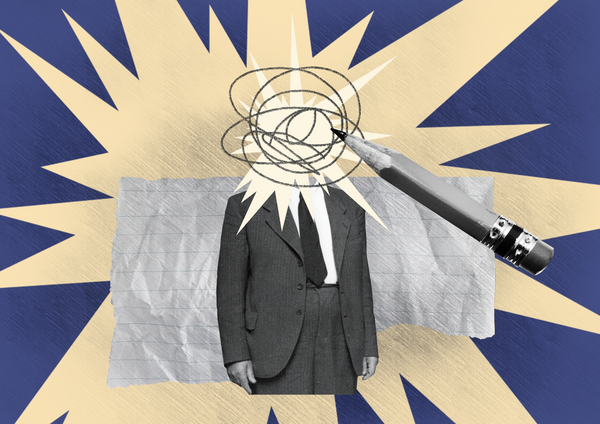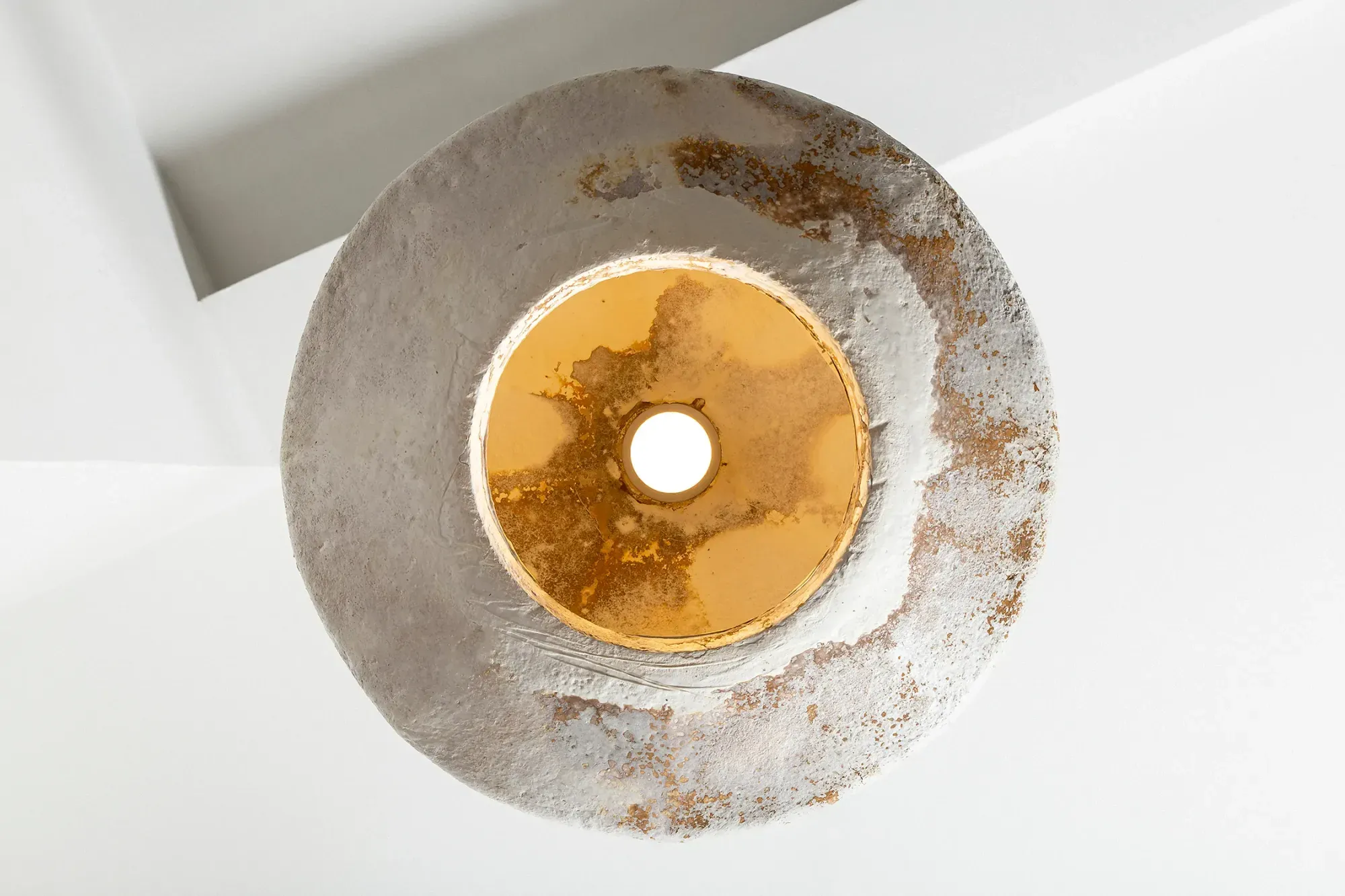Fungi have been an integral part of Earth’s biodiversity for hundreds of millions of years, and many scientific experiments have shown that our chitinous fellows are more advanced than us in certain ways. So why shouldn’t we learn from them? An Estonian company can bring the breakthrough.
In today’s world, as well as being able to produce our own food, we will soon be able to grow our own furniture and utensils for our homes. Tallinn-based Myceen has launched its lampshades called B-Wise, made from 100% mycelium, at Dutch Design Week.
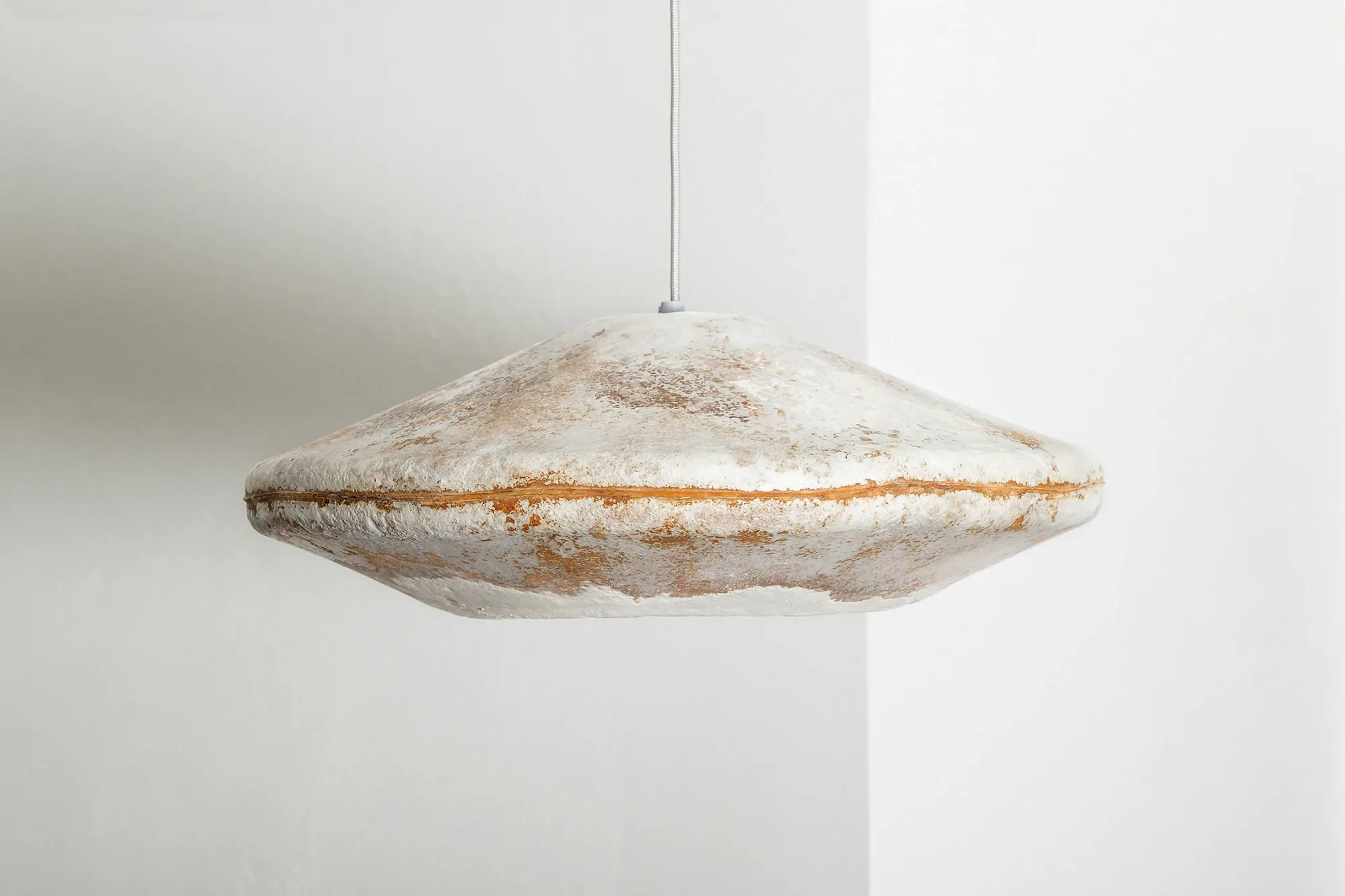
Each of the bell-shaped lampshades, resembling a UFO, is unique in appearance, with only nature’s creativity limiting the final result. The 60-centimeter-wide frames are made of plywood, aluminum, and ceramic substrates, and the outer covering consists of organic waste from the wood and agricultural industries, including sawdust and straw, mixed with mycelium.
Mycelium is built up of a network of hyphae on which, after drying, no fruiting bodies or spores are formed, making it completely harmless to humans and the home environment.
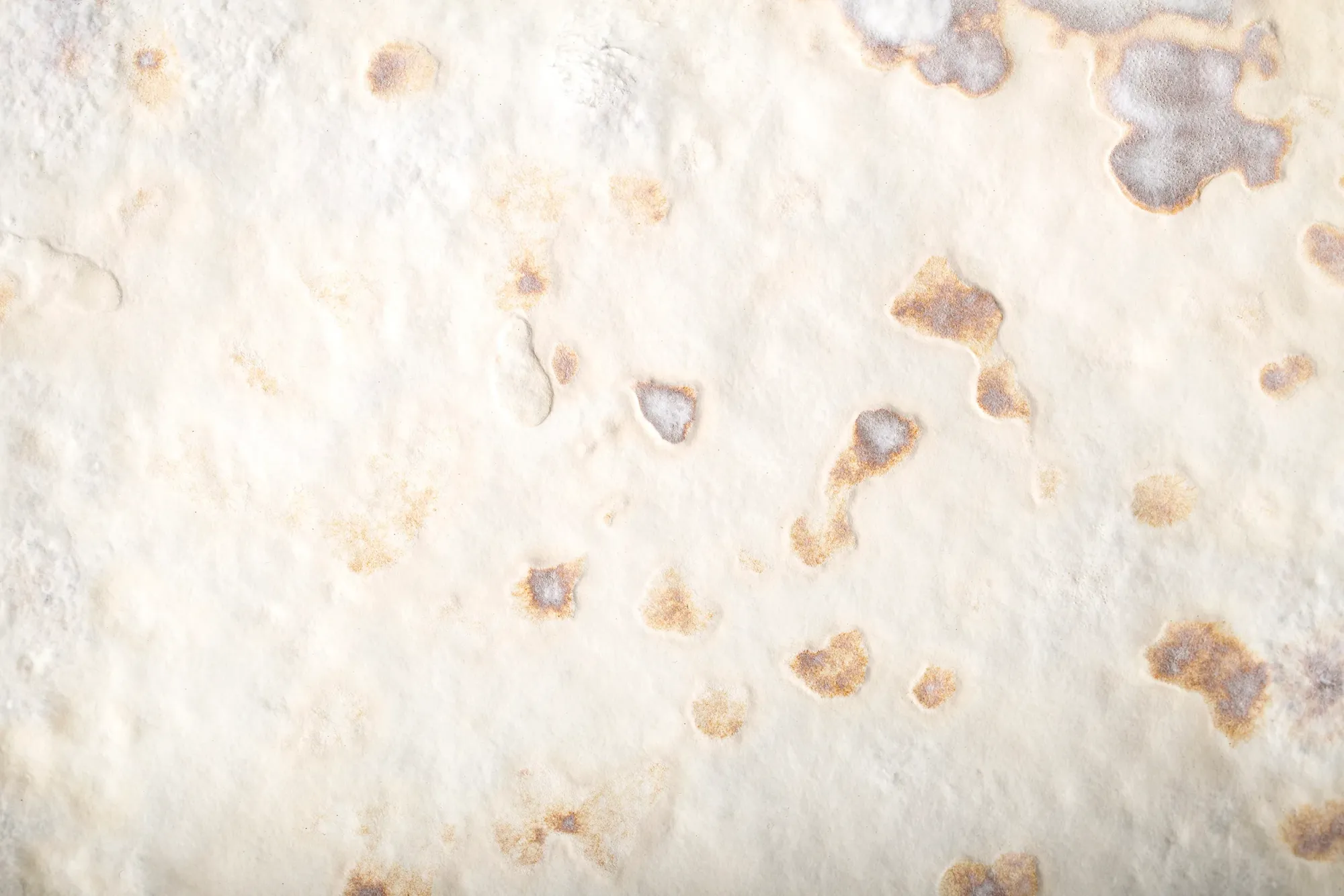
“The fungi recognize its fellow specie companion and form a strong connection without any glue or artificial binders and the growth of the fungi is stopped completely by drying the material,” says Myceen co-founder Siim Karro.
Myceen’s mission is to use the intelligence of nature combined with continuous research and design to make our immediate environment more natural and sustainable. Currently, they focus on interior design, furniture, and home furnishings, but are open to the seemingly endless possibilities of fungi in the future.
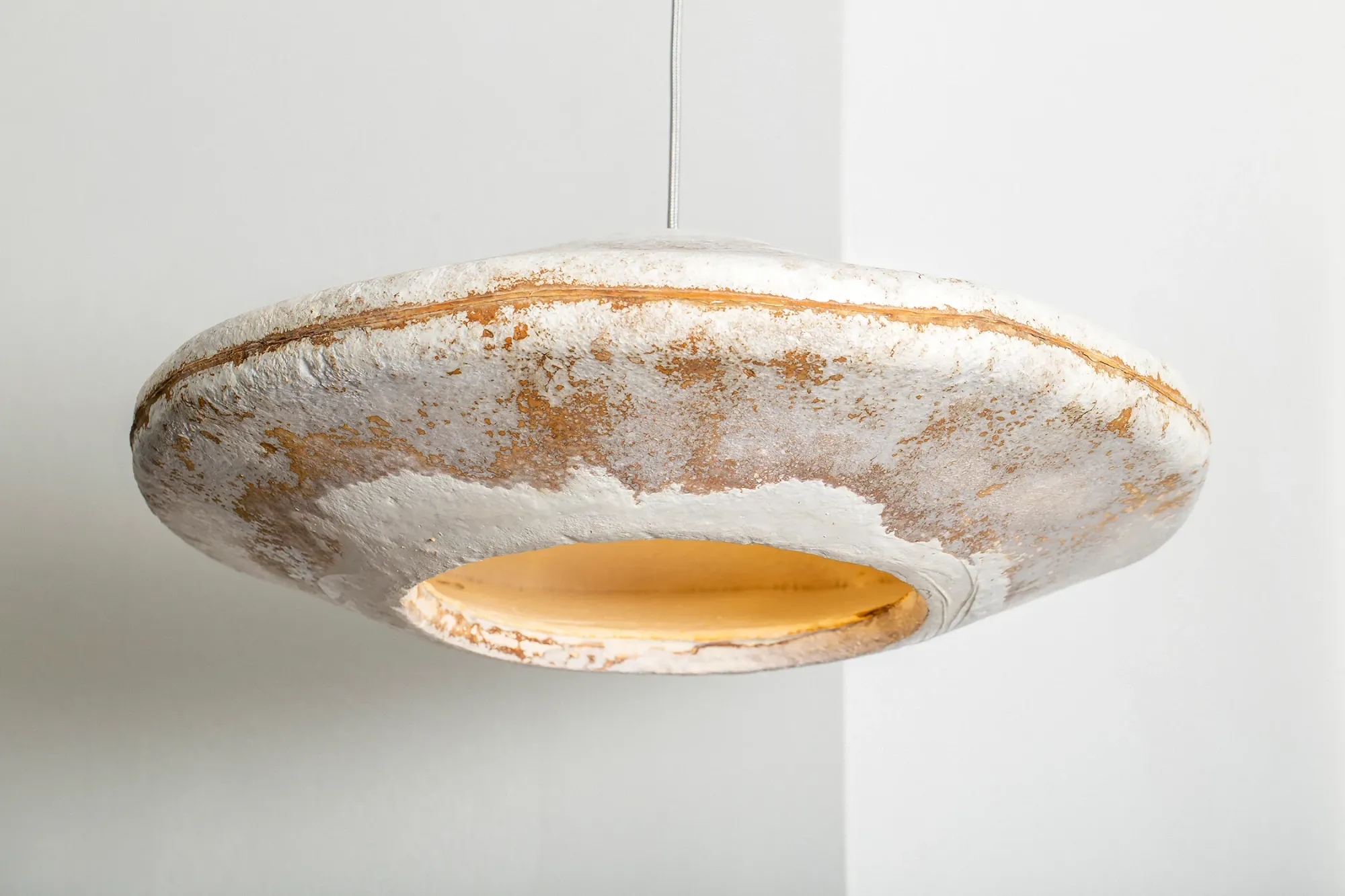
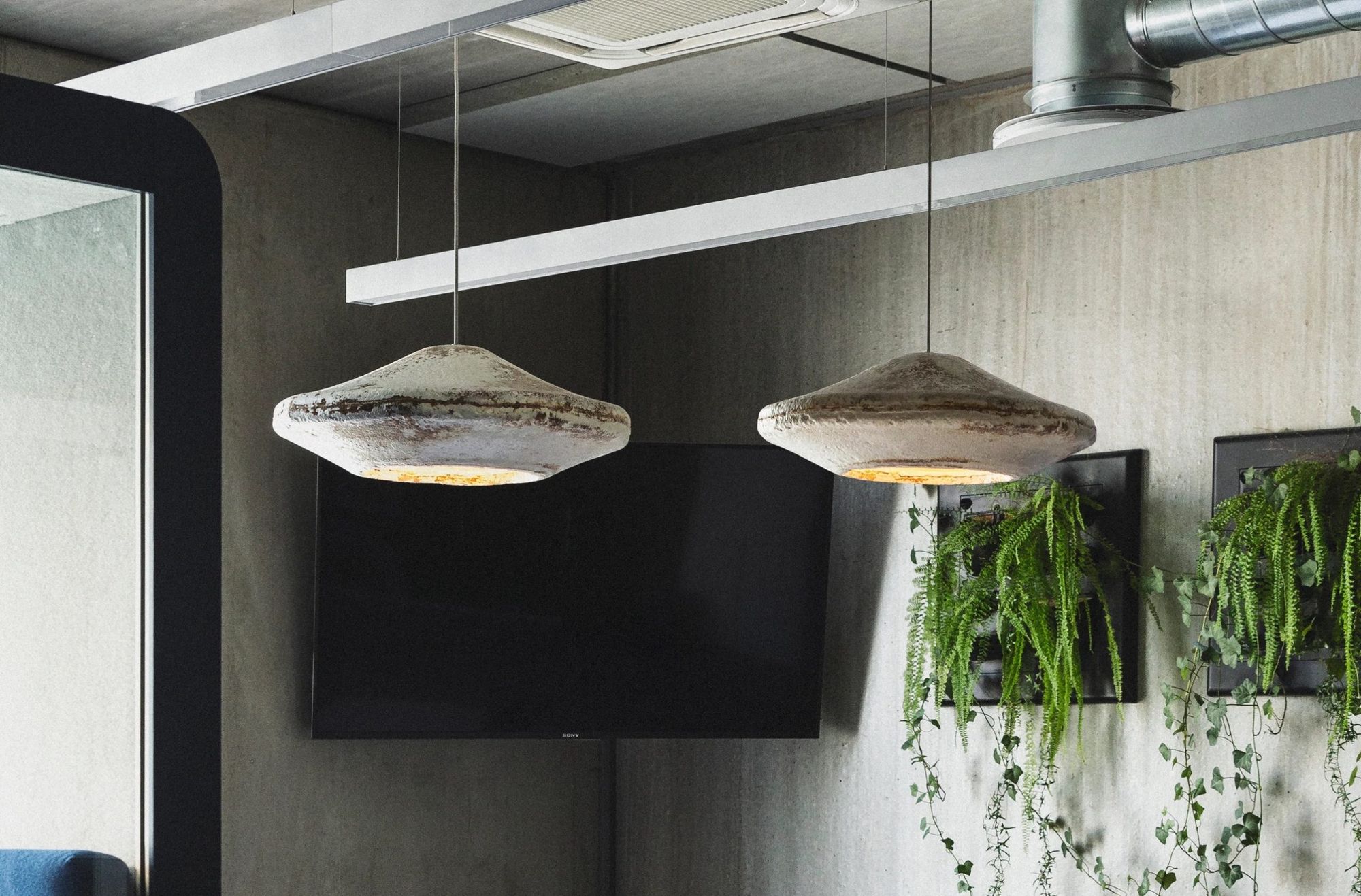
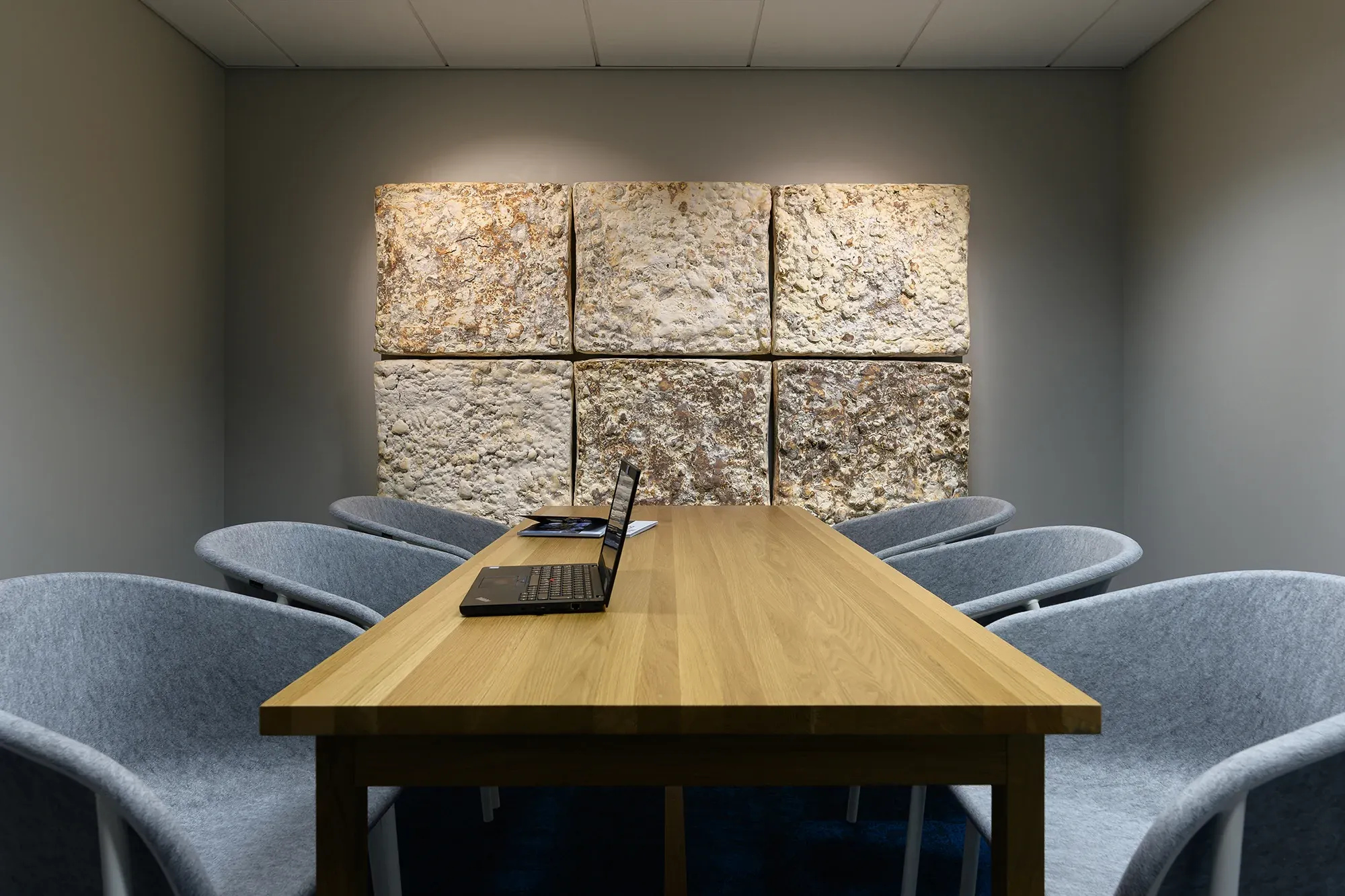
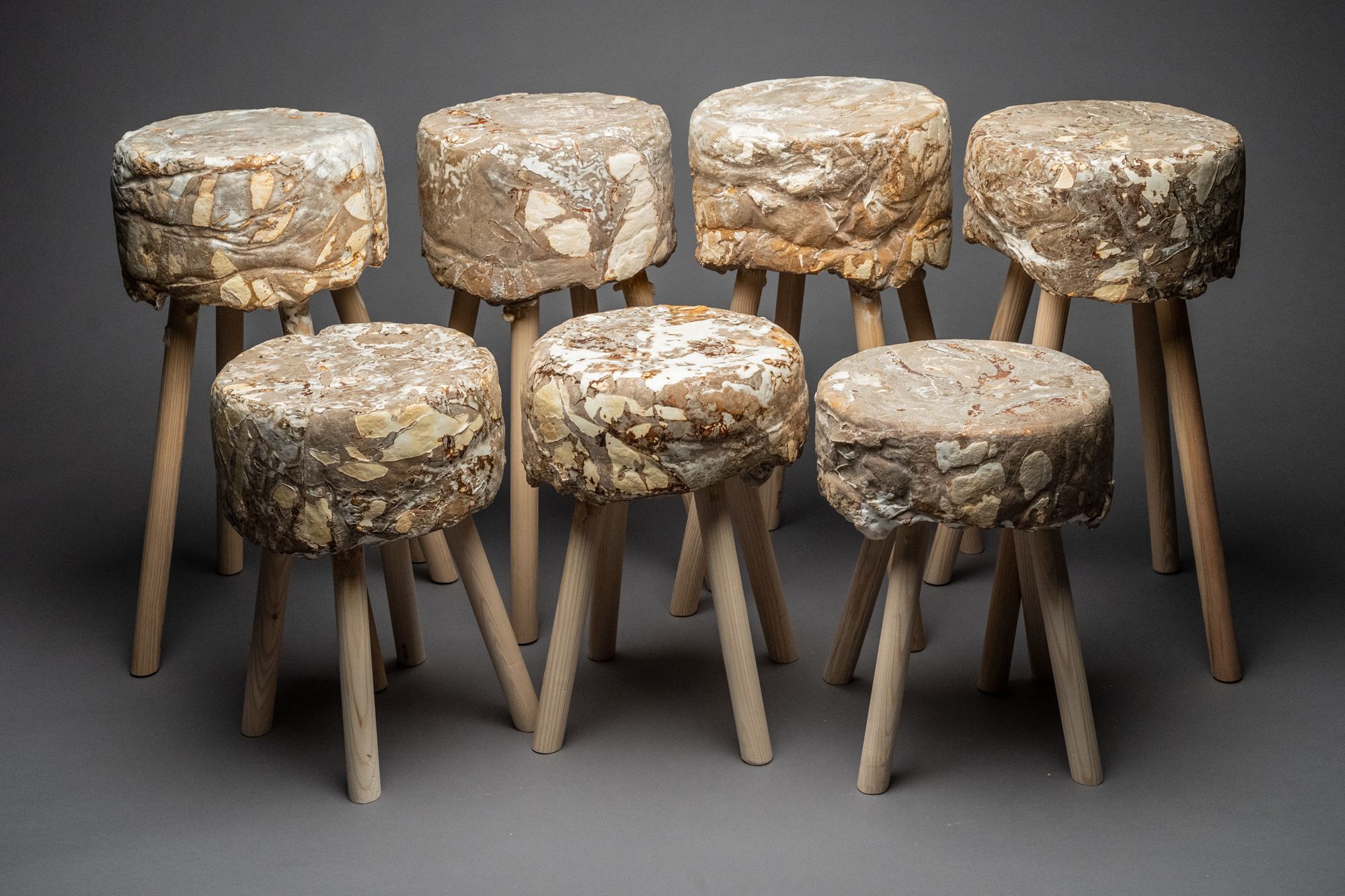
Fungi could become an exciting source of materials in the future, thanks to their emission-free, compostable, and biodegradable properties. Beyond the boundaries of design and fashion, they might also be useful in architecture, as NASA has also looked at the possibility of building houses made of mycelium on Mars.
MYCEEN | Web | Facebook | Instagram
Source: Dezeen

Faces of cities | 32nd Bratislava Month of Photography

Christmas 2022: better to recharge without spending money?
